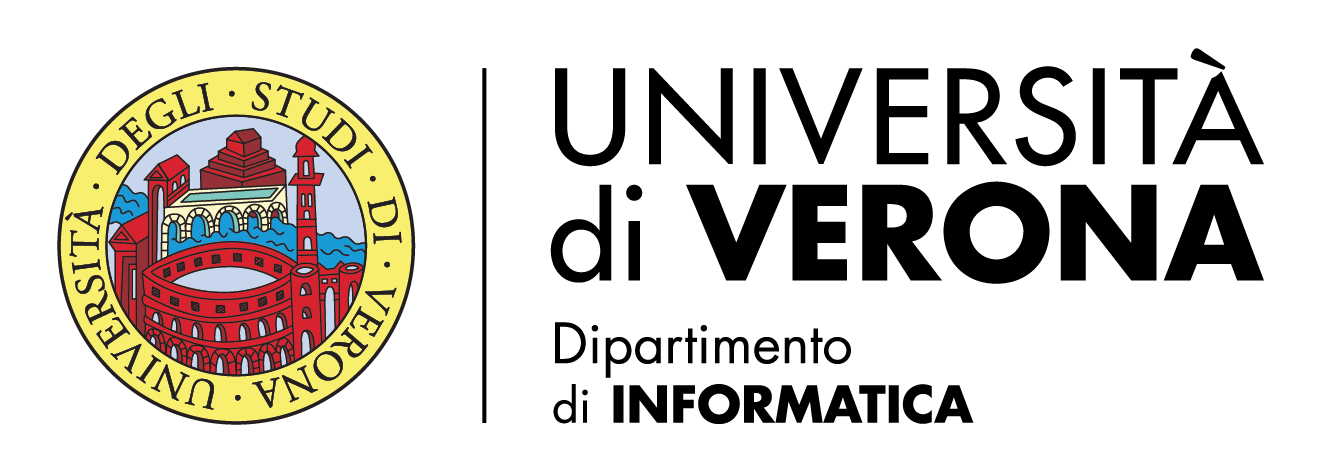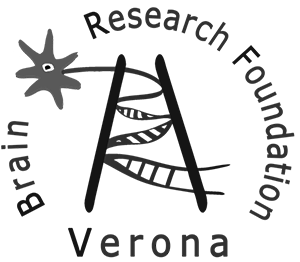2017 School on Brain Connectomics
Course content
Technical theme
Connectomics is one of the hottest inter-disciplinary topics today. It links computer science and Engineering with life sciences and medicine. Connection networks grow over functional (fMRI, ASL, EEG, MEG) and structural (diffusion weighted MRI) data and the integration of the two in both static and dynamic conditions would shed light on the way our brain actually works. Connectomics also holds paramount potential for clinical applications through the characterization of the network’s modulation in pathologies and the assessment of the treatment. In particular, it allows capturing the plasticity processes that are due to different causes including learning, aging and recovering from injury. All these topics must be faced in a multidisciplinary approach touching the different fields that are involved by this exquisitely interdisciplinary topic.
Outline of the topics
The School on Brain Connectomics aims at gathering the knowledge in the different fields that are touched by these topics providing the students a comprehensive view of this research area as well as awareness about the cutting-edge methodological, experimental and clinical aspects that are involved. Connectomics bridges signal and image processing with applied mathematics, graph theory and machine learning.
Program
Day 1 - October 9
| Time | Topic | Title | Lecturers |
|---|---|---|---|
| 8:15 - 8:45 | Registration | ||
| 8:45 - 9:00 | Welcome address | Gloria Menegaz, Mario Pezzotti | |
| 9:00 - 10:00 | Opening Lecture | Structural and functional connectomics - an overview | Jean Philippe Thiran |
| 10:00 - 11:30 | Neuroanatomy | Looking at the brain grey and white matter: connectivity versus connectome approaches | Marina Bentivoglio |
| 11:30 - 11:45 | Break | ||
| 11:45 - 13:15 | Neuroanatomy | Computational neuroanatomy and its relevance to brain theory | Giorgio Innocenti |
| 13:15 - 14:15 | Lunch | ||
| 14:15 - 15:15 | Power Pitch | ||
| 15:30 | Social event | ||
Day 2 - October 10
| Time | Topic | Title | Lecturers |
|---|---|---|---|
| 8:30 - 10:00 | Diffusion MRI | What can we learn from the diffusion MRI signal? | Donald Tournier |
| 10:00 - 11:30 | Diffusion MRI |
20 years after DTI, 10 years after HARDI, What diffusion MRI told us about the brain? Can we learn anything new? |
Carlo Pierpaoli |
| 11:30 - 11:45 | Break | ||
| 11:45 - 13:15 | Diffusion MRI | Diffusion MRI tractography: basic concepts, algorithms and open questions for structural connectivity analyses | Alessandro Daducci |
| 13:15 - 14:15 | Lunch | ||
| 14:15 - 17:30 | Hands-on Session: Diffusion | D. Tournier | |
Day 3 - October 11
| Time | Topic | Title | Lecturers |
|---|---|---|---|
| 8:30 - 10:00 | Functional Imaging | Decoding the brain activity: functional neuroimaging and connectivity | Silvia F. Storti |
| 10:00 - 11:30 | Functional Imaging | An introduction to resting state fMRI functional connectivity | Janine Bijsterbosch |
| 11:30 - 11:45 | Break | ||
| 11:45 - 13:15 | Functional Imaging | Functional connectivity models: from blobs to (dynamic) networks | Maria Giulia Preti |
| 13:15 - 14:15 | Lunch | ||
| 14:15 - 17:30 | Hands-on Session: functional imaging | J. Bijsterbosch | |
Day 4 - October 12
| Time | Topic | Title | Lecturers |
|---|---|---|---|
| 8:30 - 10:00 | Connectivity | Seeding connectivity: cortical parcellation | Olivier Coulon |
| 10:00 - 11:30 | Connectivity | Graph theoretical applications to structural and functional connectivity | Martijn Van den Heuvel |
| 11:30 - 11:45 | Break | ||
| 11:45 - 13:15 | Connectivity | Prediction with brain graphs: from signal processing to machine learning approaches | Jonas Richiardi |
| 13:15 - 14:15 | Lunch | ||
| 14:15 - 17:30 | Hands-on Session: Brain Connectivity and Graphs | A. Griffa | |
Day 5 - October 13
| Time | Topic | Title | Lecturers |
|---|---|---|---|
| 8:30 - 10:00 | Microstructure | Microstructure imaging with diffusion MRI: Pulse sequence design and biophysical modelling | Markus Nilsson |
| 10:00 - 10:15 | Break | ||
| 10:15 - 11:45 | Validation | Validating tractography pipelines: the help of simulated phantoms | Emmanuel Caruyer |
| 11:45 - 13:00 | Panel discussion | ||
| 13:15 - 14:15 | Lunch | ||
Power Pitch
All the participants are required to present their research topic and activity during one minute at the power pitch session taking place on Monday right after lunch. To this end, three slides must be sent to the organizers by Friday 6 at 11:00 am in pdf format.
Speakers
Jean Philippe Thiran
Signal Processing Lab. (LTS5), Swiss Federal Institute of Technology (EPFL)
BIO Academic pageMaria Giulia Preti
Swiss Federal Institute of Technology (EPFL) and University of Geneva, Switzerland
BIO Academic pageOlivier Coulon
MeCA research group - Laboratory for Signals and Systems (LSIS), CNRS, Marseille, France
BIO Academic pageMartijn Van den Heuvel
Dutch Conectome Lab, University Medical Center (UMC) Utrecht, Netherlands
BIO Academic pageMarina Bentivoglio
Department of Neuroscience, Biomedicine and Movement Science, University of Verona
BIO Academic pageCarlo Pierpaoli
Quantitative Medical Imaging Section - National Institute of Biomedical Imaging and Bioengineering (NIH)
BIO Academic pageGiorgio Innocenti
Karolinska Institutet, Department of Neuroscience, Solna, Stockholm
BIO Academic pageAlessandra Griffa
Dutch Conectome Lab, University Medical Center (UMC) Utrecht, Netherlands
BIO Academic pageVenue
The school will be held at the Dept. of Computer Science of the University of Verona (Verona, Italy). Facilities will be made available for hands-on laboratory sessions where the students will learn and experiment software tools for data processing (pre-processing, analysis, modeling).
Committees
Organizing Committee:
Gloria Menegaz
Alessandro Daducci
Silvia Storti
Local Committee:
Gloria Menegaz
Alessandro Daducci
Silvia Storti
Ilaria Boscolo Galazzo
Mauro Zucchelli
Lorenza Brusini
Registration
Registration fees:
- SPS member, student (lowest rate) - € 150 for the whole event
- Non-SPS member, student - € 200 for the whole event
- SPS member, non-student - € 300 for the whole event
- Non-SPS member, non-student - € 350 for the whole event
The number of participants is limited to 40.
Priority will be given to Ph.D. students. If you are a post-doc or a researcher, please contact one of the organizers (gloria.menegaz[at]univr [dot] it , alessandro.daducci[at]univr [dot] it , silviafrancesca.storti[at]univr [dot] it ). Admission to the school is possible if there are positions available.
Application requirements:
- The applicant's curriculum vitae
- A signed motivation letter from the applicant that includes a statement indicating how this School may benefit the applicant's current or future research or training
- If the applicant is a PhD student, a signed letter from the applicant's supervisor confirming her/his enrollment in a PhD course
Applicants should send the necessary documentation via email at the following address: gloria.menegaz[at]univr [dot] it
Deadline for applications: September 15, 2017
AFTER the notification of acceptance, payments can be made via credit card at the following link: http://www.di.univr.it/?ent=vendita&codice=BRAIN17
Travel grant program
Depending on the available funding, travel grants could be offered to participants to assists them in attending the Winter School on Brain Connectomics. A limited number of scholarships will be given to attendees who have a demonstrable need for financial support. Award criteria will include the effectiveness of the power pitch presentation and preference will be given to PhD students and to those living outside Italy.
Travel scholarships are intended to help cover the cost of travel, lodging and registration, and cannot exceed € 500 per applicant.
As the scholarships depend on the availability of residual funding upon completion of the School, applicants will be notified of the outcome of the awarding process only once the registration of all the attendees is completed. The scholarships are issued as a reimbursement.




